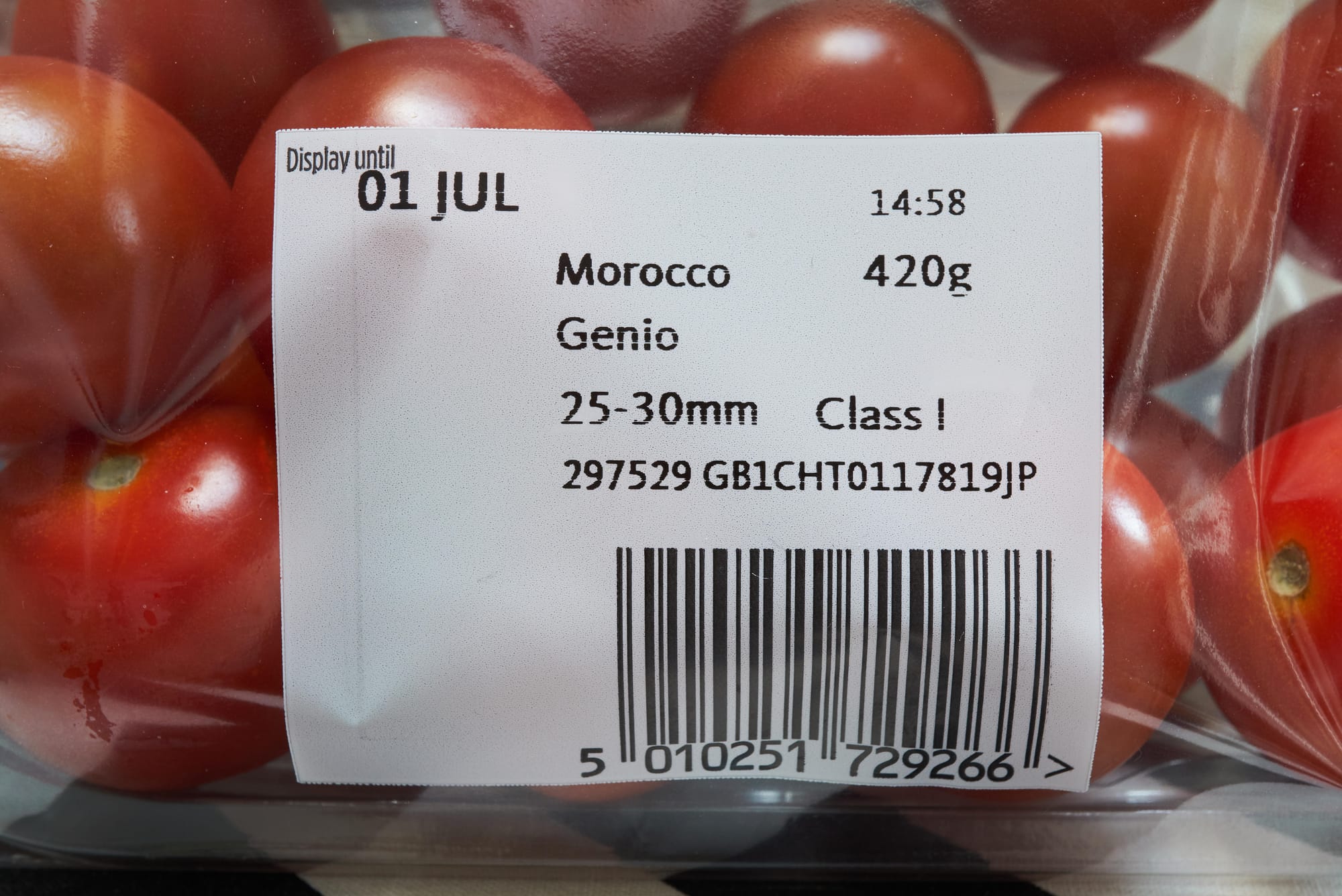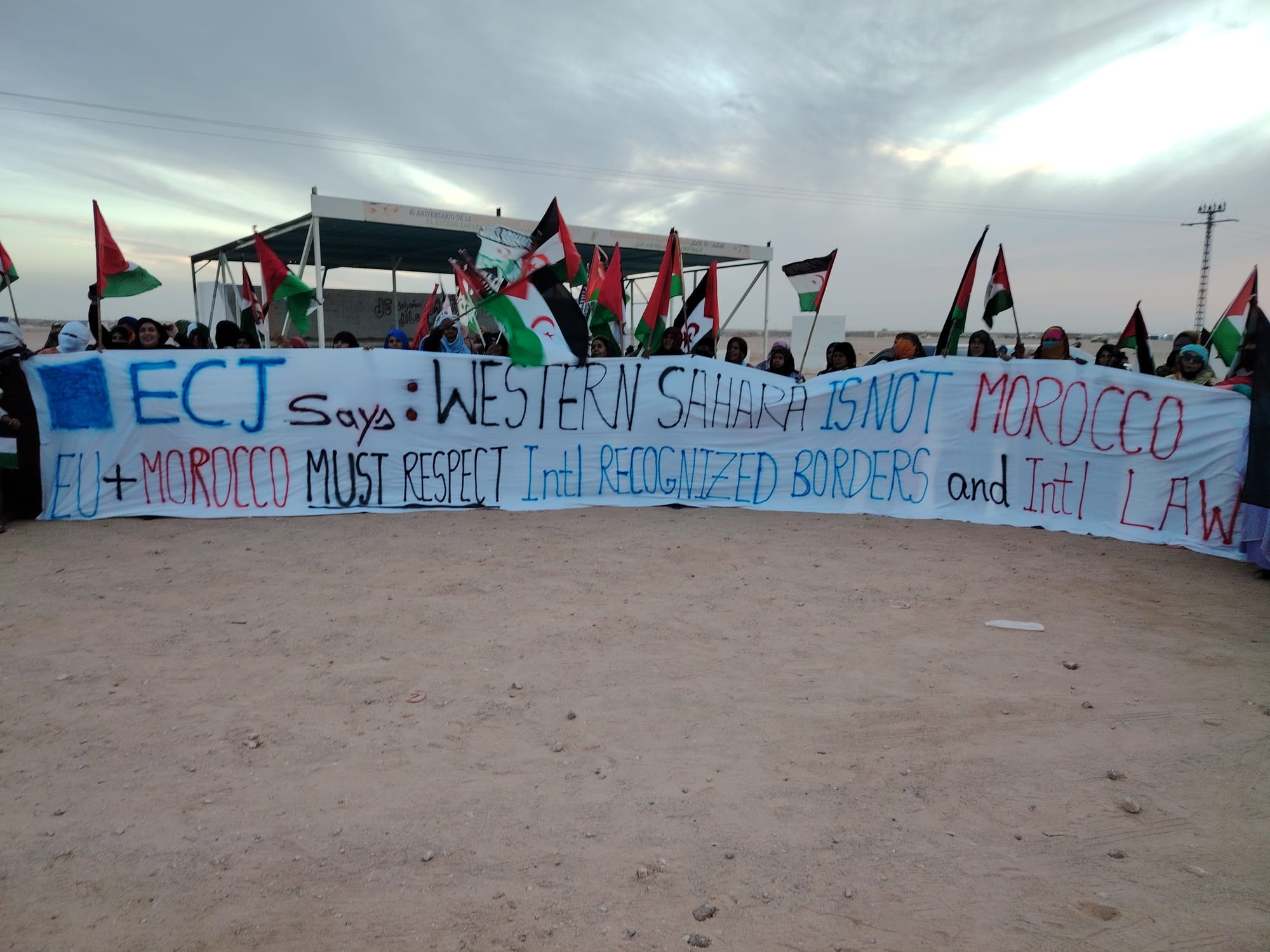Could you be eating conflict tomatoes?

Chances are, if you’ve bought tomatoes from a British or European supermarket recently, they will be labelled as originating from Morocco. But what the label doesn't say is that they could have actually come from Western Sahara, a former Spanish colony that Morocco has occupied since 1973. A 30-year ceasefire between Morocco and the Polisario Front, which represents the Sahrawi people, collapsed in 2020 and fighting continues to this day.
But after a 12-year legal battle came to an end this month, many farm and fish products exported by Morocco to the European Union will be required to carry the explicit Western Sahara label.
On 4 October, the Court of Justice of the European Union (CJEU) also confirmed an earlier ruling that blocked the EU’s inclusion of Western Sahara in its trade and fishery agreements with Morocco because they were agreed to without consent from the Sahrawi people of Western Sahara.
The Polisario has been working to gradually undermine the economic and financial interests that underpin Moroccan occupation, called the ruling ‘historic’.

‘It is a victory of universal justice and a strong message to illegal occupiers and companies which plunder oppressed people's natural resources,’ said Sidi Breika, the Polisario’s UK representative. Breika worked closely on the case with the Western Sahara Campaign UK, which was previously unsuccessful in challenging the UK’s post-Brexit trade agreements with Morocco.
Morocco, which now stands to lose €40 million ($43.6 million) per year in EU funds, has rejected the ruling and denounced it as ‘blatant political bias’.
‘Morocco reiterates its constant position not to subscribe to any agreement or legal instrument that does not respect its territorial integrity and national unity’, the Ministry of Foreign Affairs said in a statement.
So what happens now?
Hugh Lovatt, a senior policy fellow with the European Council on Foreign Relations (ECFR) has written that the court’s decision will resonate far beyond agricultural exports and fishery access and will ‘inexorably impact all existing and future EU-Morocco agreements, including scientific and technological cooperation, green energy development, and European Investment Bank investment.’
Western Sahara Resource Watch (WSRW), a group that campaigns against unlawful resource extraction in Western Sahara, has made a series of recommendations for how this ruling can contribute to a lasting, peaceful resolution in the region. These include the EU's engagement in ‘exploratory talks’ with the Polisario Front to develop legally compliant bilateral ties with the territory and for EU bodies to clearly differentiate between Morocco and Western Sahara in all current and future trade deals.
‘At a time when international law is under pressure, it is fundamental that the EU follows its own court and stops collaborating with the occupier through illegal trade agreements,’ WSRW said in a statement.
Action and info:
📰 Read more: What Polisario's legal win means for EU ties with Western Sahara and Morocco and The way ahead: This is what WSRW recommends
👉 Follow: WSRW for regular news and updates on resource extraction in Western Sahara
✅ Attend: ‘Victory for Western Sahara in EU Court: Where we go from here’ on 21 October at 7:30PM at Portcullis house. Email wsactionforum@gmail.com by 10am TODAY to register your interest.
✊ Get involved by helping WSRW find and report mislabelled tomatoes and other produce in European supermarkets. More info here
Like what you've read? Support us with a tip.
Are you a freelancer? Pitch us a story.
Want to contribute to our Currents Calendar? Leave a comment below.

